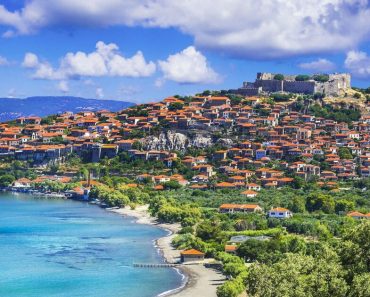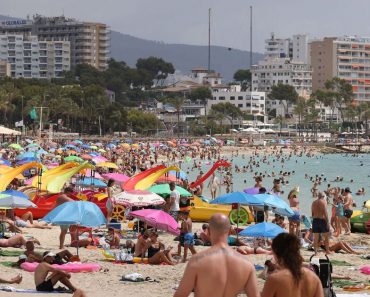Greek Prime Minister Kyriakos Mitsotakis has announced a new set of measures aimed at relieving the burden on over saturated destinations.
Confirming a proposal that has been in the pipeline for a few months, to increase the cruise debarkation fee on popular islands from €0.35 to over €10 per person, Mitsotakis clarified on Sunday, 8 September, that the fee would in fact be €20 and will be applied during the summer months in the popular islands of Santorini and Mykonos.
Moreover, a system will be put in place to regulate the number of cruise ships allowed to dock at the same time. Santorini Mayor Nikos Zorzos had already announced a few weeks prior the island had such a system prepared, based on an 8,000 daily visitor limit found to be sustainable by a 2018 University of the Aegean study, and was going to implement it regardless of any governmental action on the matter.
“The Santorini digital berth allocation system takes qualitative criteria into consideration for granting berth and debarkation permissions—such as the size of the ship and whether it operates as a green ship or not. Also, the length of the stay is examined; we prioritize any [ships] that wish to stay longer hours on the island, as this means that their passengers won’t be rushing from one spot to the other”, the Mayor explained in an interview with the Greek Reporter.
While recognising cruise ships have been a “burden” for the two islands, the Prime Minister was careful not to paint Greece overall as a saturated, and thus no longer welcoming, destination. “Greece does not have a structural overtourism problem… Some of its destinations have a significant issue during certain weeks or months of the year, which we need to deal with”, he explained.
Contributing about 25% to the country’s GDP, more than double the 9.1% global average, tourism is a key component of Greece’s economy, which is yet to fully stabilise after the 2008 financial crisis. Bringing in €20 billion last year from 31 million tourists, the industry remains an essential revenue stream.
Nevertheless, Mitsotakis also announced plans to regulate short-term rentals in crowded neighbourhoods in central Athens and possibly beyond. To start with, no new licences will be issued for short term rental properties for a year in three Athenian neighbourhoods, then, each zip code will pe analysed and where short-term rentals represent more than 5% of the total housing market, a similar halt on licences will be introduced.
Lastly, a climate crisis tax will be applied at hotels and short-term rentals alike during the high season, from April to October. “A significant portion of the revenue will go back to local communities, allowing them to better prepare for the burden they face each summer”, Mitsotakis said.
Greece is just of Europe’s southern countries taking action to better manage tourist flow this year. Italy has long been struggling with unruly tourists destroying heritage and has increased the number of measures this year. Anti-tourism protests have been ongoing all summer across Spain and Portugal has also started to feel the burden.







